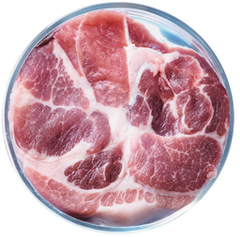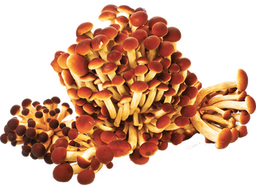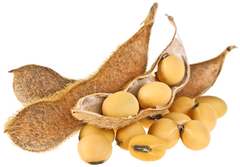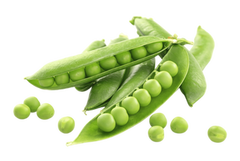Panel discussion on...
Alternative proteins
Strategizing for success
in a complex regulatory environment
The real breakthrough in the production of proteins, or virtually all the food ingredients we saw in a conventional food production, in recent years is biomanufacturing.
What is biomanufacturing? It is the process of using living systems, particularly microorganisms and/or cell cultures, to produce biological molecules and materials on a commercial scale. This includes microbial fermentation, cultured meat and seafood, and even molecular farming.
Why this is a breakthrough? For centuries, we are pursuing protein production efficiencies at the expenses of our environment, be it animal or even plant based. Biomanufacturing is the real solution to all these conundrums.
Let me use microbial fermentation as an example of biomanufacturing to tell you why these technologies are so much needed for a sustainable future. Fermentation previously was used for making seasoning and beverage. The fermentation was therefore done for the purpose of eating or drinking the byproducts made by the microbes. The new microbial fermentation technologies proposed by startups like Sophie's BioNutrients are very different. The fermentation technologies are exploited to make protein powder or other food ingredients. Therefore, we will be eating the microbes themselves in most cases and not the byproducts made by the microbes.
And why using microbial fermentation to make protein is a lot more sustainable and efficient than the conventional animal farming or even agriculture? Well, first of all, using microbial fermentation to grow proteins, you will need a lot less of space, lot less water, and also a lot less time. All these will translate into less energy used as well. On top of that, you don't need harmful chemicals like antibiotics, growth hormone, fertilizer, or herbicides during the process. This makes these technologies a lot more healthier to the environment and the human bodies. Better yet, fermentation is a "closed" system. Therefore, whatever waste streams you produce during the process can be easily collected and treated. Therefore, it won't pollute our rivers and lakes like the manure generated by the modern-day animal farms.
And do you know that microbial fermentation can make more than just proteins? The technologies can be used to make ALL kinds of food ingredients like starch, fiber, and even cooking oil. There is another start up in the Netherlands using microbial fermentation to grow a type of edible oil from a microbe to replace palm oil. We all know that palm oil, though cheap and versatile, has a lot of controversial issues with its environmental impacts. Companies and entrepreneurs had spent years to find a true alternative. I believe microbial fermentation holds the answer. And No Palm Ingredients is one of the many startups using fermentation technologies to find the best solutions. Their proprietary technologies not only can make an edible oil from microbes that has similar properties like palm, they can also produce very little footprint along the process. The oil is manufactured by fermenting sidestreams in a sustainable, circular, environmentally friendly way. Better yet, it holds the promise to be cheaper than palm oil someday when they can produce at volume. Think about what difference it will make when we can produce tons of edible oil at the same or lower cost and do very little damage to our environment. That's the promise of biomanufacturing.
Another important feature of biomanufacturing, other than efficiency, is the fact that it can be very resilient to climate change. Most of these operations are done in-door with very minimal space. Or, in the case of molecular farming, we can grow crops which can be tolerant to extreme weather conditions. All these features mean that our food supply system will no longer be dominated by the weather. We can then limit any fluctuations in pricing and reduce the impact of food inflations.
With "precision" operations and contained systems, we can increase the yields while minimizing our footprint along the way. Biomanufacturing will be a real game changer for a sustainable future as it will allow to manufacture almost everything we need.
Panelists
References and notes
- COMMISSION IMPLEMENTING REGULATION (EU) 2021/882; (EU) 2022/169; (EU) 2022/188; (EU) 2023/5; (EU) 2023/58; and (EU) 2021/1975
- https://doi.org/10.1016/j.foodchem.2019.126022
- https://doi.org/10.1016/j.cofs.2021.08.003
- https://doi.org/10.1016/j.tifs.2022.02.021
- doi: 10.3390/ijerph17072427
- https://doi.org/10.1016/j.appet.2021.105832
- https://library.wur.nl/WebQuery/wurpubs/fulltext/258042



















